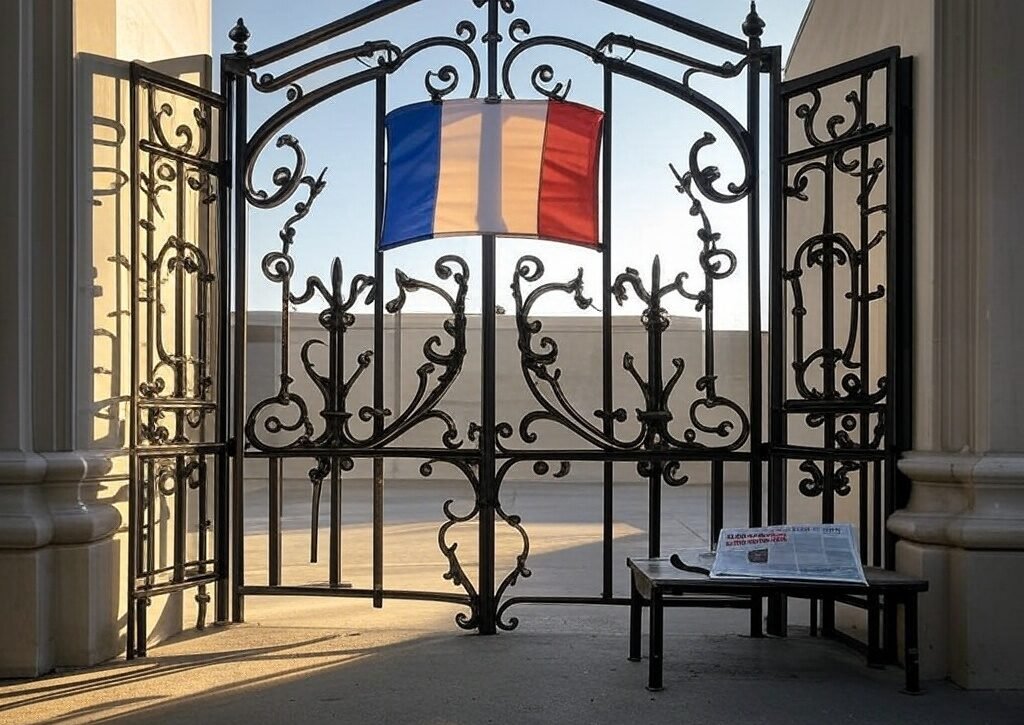Pavel Durov’s Legal Troubles: The Telegram Founder’s Journey from France to Dubai
In a significant turn of events, Pavel Durov, the founder and CEO of the widely-used messaging app Telegram, has recently marked the end of his stay in France. Following an investigation into alleged criminal activities associated with the platform, Durov is now back in Dubai, a city he has called home since 2017. This article delves into the circumstances surrounding Durov’s legal troubles, the implications for Telegram, and the broader context of digital privacy and platform moderation.
The Arrest: Unfolding the Events in France
The saga began on August 24, 2024, when Durov was arrested at France’s Le Bourget Airport after arriving on a private jet. His arrest triggered a media frenzy, highlighting the complexities of managing a platform like Telegram, which boasts millions of users globally. According to sources, he spent four days in police custody, during which the Paris criminal court detailed the charges against him. These charges primarily focus on allegations that Durov facilitated organized fraud, illegal transactions, and the sharing of child sexual abuse material (CSAM) on the platform.
In a statement posted to his Telegram channel, Durov remarked, “As you may have heard, I’ve returned to Dubai after spending several months in France due to an investigation related to the activity of criminals on Telegram. The process is ongoing, but it feels great to be home.” This statement reflects his relief at being able to leave the stringent conditions imposed during the investigation.
Legal Conditions and Modifications
Initially, Durov was required to pay a hefty bail of €5 million (approximately $5.5 million) and check in at a police station twice a week. Furthermore, he was prohibited from leaving France while the investigation was active. However, a recent decision by the investigating judge has modified these conditions, allowing him to exit the country legally. Although the Paris court did not publicly comment on the reasons for this change, it signifies a shift in Durov’s legal circumstances.
Telegram’s Response and Changes in Moderation Policies
In the wake of Durov’s arrest, Telegram took decisive steps to address concerns regarding its moderation practices. Shortly after the incident, the company updated its website and FAQ section to enable users to report private chats to moderators. Prior to this change, Telegram had maintained a hands-off approach to moderating private chats, stating that it “[did] not process any requests related to moderating chats and group chats.” This shift indicates a growing awareness of the platform’s responsibilities in combating illegal activities.
Following the changes, Telegram began removing millions of groups and channels that violated its community guidelines. The increase in moderation activity has been evident, as reflected in the company’s updated moderation overview page, which now highlights its commitment to creating a safer environment for users. This proactive approach may help mitigate concerns about the platform’s role in facilitating illicit activities, although challenges remain.
The Ongoing Investigation and Its Implications
Despite Durov’s return to Dubai, the investigation into his activities and Telegram’s operations is far from over. The legal proceedings could potentially lead to a criminal trial in France, underscoring the complexities of accountability in the digital age. Durov’s cooperation with investigators, as he noted in his statement thanking the investigative judges, suggests an intention to demonstrate Telegram’s commitment to legal compliance and user safety.
“I want to thank the investigative judges for letting this happen, as well as my lawyers and team for their relentless efforts in demonstrating that, when it comes to moderation, cooperation, and fighting crime, for years Telegram not only met but exceeded its legal obligations,” Durov added. This acknowledgment highlights the company’s position amidst the scrutiny it faces, as it strives to balance user privacy with the need for a secure platform.
The Broader Context: Privacy, Security, and Moderation Challenges
Durov’s legal troubles bring to light the ongoing debate surrounding digital privacy, security, and the responsibilities of tech companies. As messaging platforms like Telegram become increasingly popular, they also attract the attention of malicious actors, leading to a heightened focus on how these companies moderate content and protect users. The balance between user privacy and the enforcement of community standards is a delicate one, and Telegram’s recent actions demonstrate the challenges inherent in this landscape.
Moreover, Durov’s situation underscores the intricate relationship between technology and law enforcement. As governments worldwide grapple with the implications of digital communication, they often look to platforms for assistance in combating crime. This dynamic can create tension, as companies like Telegram strive to uphold user privacy while also being compelled to address illegal activities that may occur on their platforms.
Conclusion
Pavel Durov’s journey from France to Dubai amid ongoing legal scrutiny reflects the complex realities faced by tech entrepreneurs and the platforms they build. The updates to Telegram’s moderation policies and Durov’s statements of cooperation indicate a recognition of the need for accountability in the digital space. As the investigation continues, both Durov and Telegram will be navigating a challenging landscape that balances user privacy with the imperative to combat criminal activity. The outcome of this situation could have significant implications for the future of digital communication and the responsibilities of tech companies in ensuring a safe online environment.





